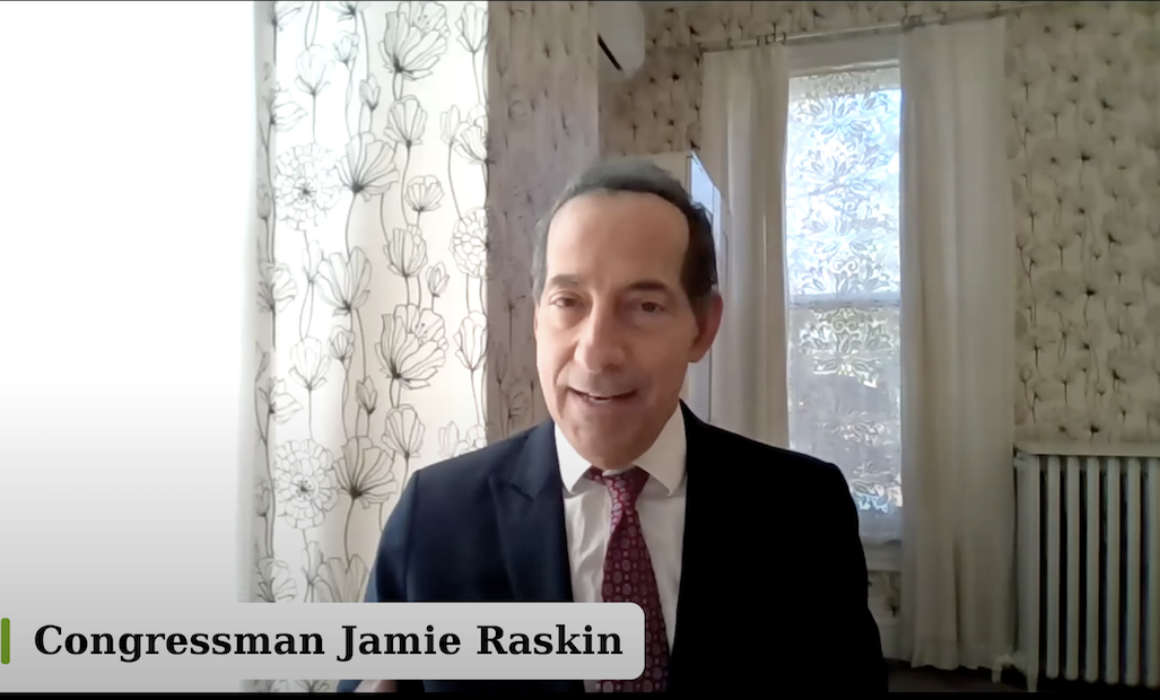What Government Efficiency Actually Means
November 15, 2024
“The president’s job is to implement the will of Congress, and also—through the actual mechanisms that have been designed by Congress—to facilitate the faithful execution of the laws,” Rep. Jamie Raskin (D-MD) said in the opening remarks of Roosevelt’s webinar on state capacity.
The Future of the Administrative State
The government’s ability to deliver on public needs has been under constant threat the last few years—from Supreme Court rulings hobbling agency expertise to Project 2025’s plan to dismantle the civil service to the recent establishment of a “Department of Government Efficiency.” In a virtual panel hosted by the Roosevelt Institute this week, experts discussed promising innovations in the administrative state from the last four years, and concrete steps government agencies can take to protect and build the state’s capacity to serve the public in 2025 and beyond.
For years, UC Berkeley Law Professor and Roosevelt Fellow Diana Reddy had told her students that American labor law was fundamentally broken. But during the Biden administration, she saw the National Labor Relations Board (NLRB) making do with what it had—and securing wins for both union and nonunion workers. The new NLRB forced policymakers to ask, “Was the statute the problem, or was it our politics that was the problem?” The Board’s innovative approach to delivering on its mandate of protecting the right to organize is the subject of Reddy’s recently published Roosevelt brief.
Roosevelt’s Todd N. Tucker shared insights from his conversations with Biden administration alumni from the Department of Energy, Department of Commerce, and Environmental Protection Agency, looking at their roles in implementing major legislation like the Inflation Reduction Act. Over the last four years, Tucker said, these agencies were asked to go beyond their traditional roles of research and regulation—specifically, to transform into “vehicles for public investment in the economy.” It was a new function they hadn’t taken on before, and it both expanded the agencies’ personnel and broadened their mandates.
Looking ahead, K. Sabeel Rahman, Roosevelt Board member and former leader of the Office of Information and Regulatory Affairs, predicted that the incoming administration may dial back certain aspects of administrative capacity—such as through deregulation—while boosting other aspects, such as immigration enforcement. The Left can ask the same questions: “Where do we want to see affirmative state capacities?” and “Where should we make a harder attempt as progressives to take apart aspects of state power that are dangerous?” Rahman explored these questions and more in a report and a brief published by Roosevelt this year.
Rep. Jamie Raskin (D-MD) kicked off the webinar by discussing how the Constitution protects the rule of law, highlighting the importance of state and local governments—and the crucial role that outside institutions such as the press play in providing the information necessary to help these powers govern effectively.
What We’re Talking About

What We’re Reading
US Economy’s Resilience Depends on Foreign Stability feat. Roosevelt Chief Economist Joseph Stiglitz – Yahoo! Finance
Should NYC Require Landlords to Provide Air Conditioning? – feat. Roosevelt Fellow Diana Hernandez – City Limits
The Lesson of This Election: We Must Stop Inflation Before It Starts – New York Times
DOJ Sues UnitedHealth amid $3.3 Billion Bid to Buy Home Care Giant Amedisys – CBS News
US Labor Board Bans Captive Audience Meetings to Ensure ‘Truly Free’ Worker Choice – Common Dreams


